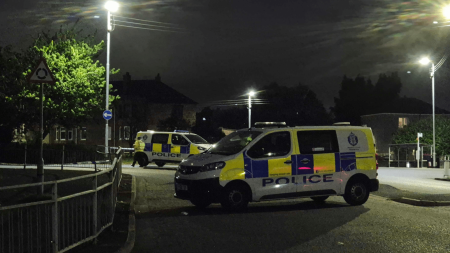The sentencing of Axel Rudakubana for the Southport dance school attack, where he murdered three young girls, Elsie Dot (7), Alice da Silva Aguiar (9), and Bebe King (6), has left an indelible scar on the nation. The unimaginable grief of the parents, eloquently expressed in their victim impact statements, highlights the profound loss of these children’s lives and futures. The details of the attack, including the children’s screams and Rudakubana’s chilling post-attack confession, are deeply disturbing and underscore the brutality of the crime. The case forces us to confront the reality that such tragedies can strike anywhere, leaving parents grappling with the fear that their own children could be victims.
This horrific event transcends the immediate families and impacts the entire community and the nation as a whole. The collective trauma and heartbreak demand a critical examination of how such a tragedy could occur. Rudakubana, despite exhibiting warning signs like violent outbursts at school, referrals to the Prevent program, and a preoccupation with violence, was able to carry out his horrific plan. This failure of the system to intervene effectively raises serious questions about how we identify and manage individuals who pose a threat to society. The Southport attack serves as a stark reminder of the urgent need to improve preventative measures and address the root causes of such violence.
The traditional responses to such tragedies, such as candlelight vigils and calls for unity, while well-intentioned, feel insufficient in the face of such senseless loss. The recurring nature of knife crime, particularly among young people, has become a disturbingly familiar headline. While statistically rare, these incidents are frequent enough to shatter any sense of complacency. The nation cannot simply accept these events as “normal” and move on. We must demand action, not just platitudes, from our leaders and institutions. The question remains: when will we move beyond mourning and implement meaningful change?
The case of Axel Rudakubana is not an isolated incident but part of a larger pattern of violence. His desire to inflict harm on a larger scale underscores the potential for even greater devastation. The public inquiry that will inevitably follow the sentencing should not be another exercise in bureaucratic hand-wringing. It must lead to tangible reforms that address the systemic failures that allowed Rudakubana to become a danger to society. This includes strengthening mental health services, improving communication between agencies, and developing more effective strategies for identifying and managing individuals at risk of committing violent acts.
Parents across the country are forced to live with the fear that their children could become victims of random violence. The sense of vulnerability and the constant need for vigilance create a climate of anxiety that should not be tolerated. No parent should have to worry about their child’s safety when they attend school, go to a dance class, or simply ride the bus. The expectation that parents just “keep their fingers crossed” and hope for the best is unacceptable. We must create a society where children are safe and where parents can have confidence in the systems designed to protect them.
The families of Bebe, Elsie, and Alice will forever bear the scars of this tragedy. Their unimaginable grief serves as a constant reminder of the devastating consequences of violence and the urgent need for change. The nation must honor the memory of these children by taking concrete steps to prevent future tragedies. This means moving beyond the rhetoric of “lessons learned” and implementing meaningful reforms that address the root causes of violence, strengthen our support systems, and create a safer environment for all children. Only then can we begin to heal and ensure that no other parent has to endure the unbearable pain of losing a child to senseless violence.











